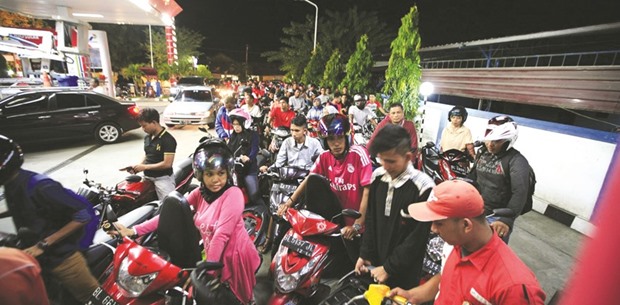Indonesia needs to increase revenue growth, cut fuel subsidies and implement reforms to attract foreign investment in order to win a rating upgrade from Standard & Poor’s (S&P), a senior official with the ratings agency told Reuters yesterday.
An investment grade rating from S&P is a top priority for President Joko Widodo’s administration as it would reduce Indonesia’s risk premium and bring down government bond yields for the country – Southeast Asia’s largest economy.
S&P, which raised its 12-month speculative-grade outlook rating to positive from stable last year, will review its annual rating on Indonesia starting next month, with an announcement expected in May.
Widodo has achieved a lot since taking office in late 2014 in terms of fuel subsidy reforms and increased infrastructure spending, and what it would take for a higher rating would be “to see a bit more of the same”, said S&P’s director of sovereign ratings, Kryan Curry. “We want to see the government continuing to deliver on its promises to lower its fuel subsidies. This means all of it - diesel and gas,” Curry said during a visit to Jakarta.
Curry said other positives working for Indonesia included a “fairly low” fiscal deficit and improving coordination between the central bank and the finance ministry.
Reflecting how seriously Indonesia is taking the S&P’s review, central bank governor Agus Martowardojo last week called on the government to address some fiscal concerns on revenue and subsidies to win S&P’s investment grade rating.
The energy ministry also last week said it was considering scrapping subsidies on diesel fuel to create much-needed spending room.
“For the president, definitely that (S&P) appraisal is important and is part of a measure of the investment climate in Indonesia,” said palace spokesman Johan Budi. Other ratings agencies Fitch and Moody’s have already given Indonesia an investment grade rating.
However, there are a few things holding S&P back from upgrading Indonesia’s rating, Curry said. Among those are its weak GDP per capita versus other similar-rated countries and concerns over red tape, entrenched corruption and unimpressive foreign investment growth, he added.
The pace of economic reforms in Indonesia has also slowed since last October and there is a growing “populous sentiment” among cabinet members, he said. “If we start to see policy reversal, unpredictability, lack of consultation, policies overtly favouring the personal business interest of people in the cabinet, that would be a damaging thing that would weigh on our views,” he said.

Dozens of scooter drivers queue to refuel at a gas station in Jakarta. An investment grade rating from S&P is a top priority for President Joko Widodo’s administration as it would reduce Indonesia’s risk premium and bring down government bond yields for the country.
